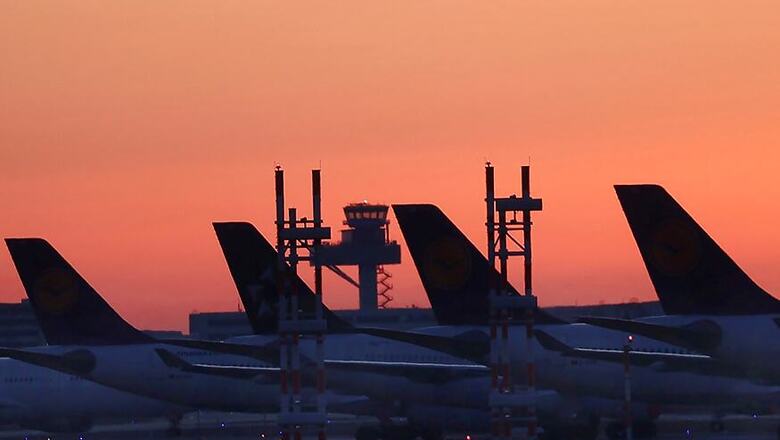
views
The aviation regulator DGCA has said that it is extending the suspension of scheduled international passenger flights in the country till July 31. However, it added that some international scheduled services on selected routes may be permitted on a case to case basis.
Scheduled international passenger flights were suspended in India on March 23 due to the coronavirus pandemic.
Modifying its June 26 circular that stated that scheduled international passenger flights will remain suspended till July 15, 2020, the regulator said on Friday it has decided to extend the deadline to July 31, 2020.
"However, international scheduled flights may be allowed on selected routes by the competent authority on a case to case basis," said the circular by the Directorate General of Civil Aviation (DGCA).
India is in talks with the US, Canada and countries in the European and Gulf regions to establish "individual bilateral bubbles" which will allow airlines of each country in the pact to operate international flights, said Airports Authority of India chairperson Arvind Singh on Thursday.
The Ministry of Civil Aviation (MOCA) said on June 23 that India is considering establishing "individual bilateral bubbles" with the US, the UK, Germany and France. Civil Aviation Minister Hardeep Singh Puri said on June 20 that the government will start thinking on the resumption of scheduled international passenger flights in mid-July when it expects the domestic air traffic to reach 50-55 per cent of the levels before the coronavirus.
After nearly two months of suspension to combat the coronavirus pandemic, the government resumed scheduled domestic passenger flights on May 25. However, it had allowed airlines to operate a maximum of 33 per cent of their pre-COVID flights. The MOCA increased the limits on June 26 from 33 per cent to 45 per cent.
Also Watch:
Air India and other private domestic airlines have been operating unscheduled international repatriation flights under the Vande Bharat Mission, which was started on May 6 by the Central government.




















Comments
0 comment